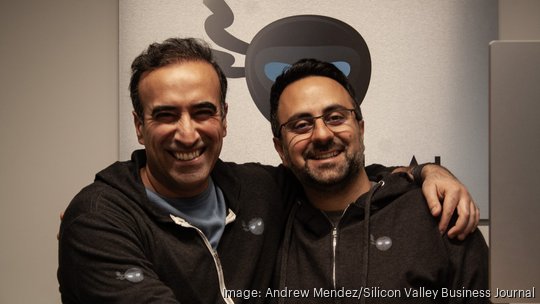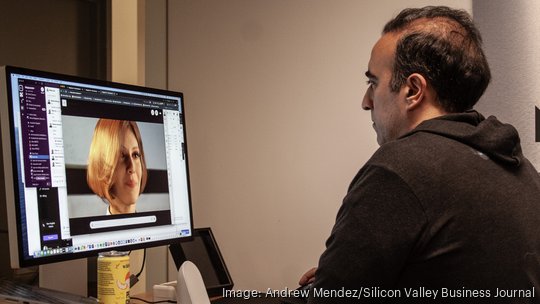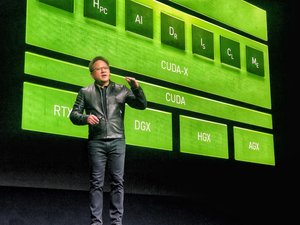
Siri, meet Atlas, the new task-based assistant that wants to finish the job you started over a decade ago.
At least that’s what Babak Pahlavan hopes for, along with the team at NinjaTech AI Inc., the company responsible for Atlas.
Pahlavan left a 10-year gig at Alphabet Inc. in 2022 to join the Stanford Research Institute (SRI) as an entrepreneur-in-residence. His mission: to make the dream of a next-generation, task-based assistant a reality. Since graduating from SRI’s program in January, Pahlavan — a two time founder who has 15 years of experience building artificial intelligence — launched NinjaTech.
“Until now, we’ve had ‘information’ assistants and more recently co-pilots, which are a generation of assistants that assist users while performing tasks,” Pahlavan said in a recent interview. “Co-pilots do a great job providing suggestions, giving aid in solving problems, and conducting on-demand research. With co-pilots, the final decision on ‘how’ to complete a task rests with the users.”
Headquartered in Palo Alto, NinjaTech AI has grown into a 30-person team — the majority coming from Google LLC, Meta Platforms Inc. or Amazon Web Services Inc. — to work on what they believe will be the future of AI personal assistants, all from a three-office shared workspace.
According to a report by Goldman Sachs, over 45% of administrative tasks can be automated with AI.
But in order to get there, Pahlavan said, the AI landscape has to be able to tackle problems that require a series of decisions made deliberately and consciously.
That’s why NinjaTech has built and beta launched its online personal assistant, Atlas. It works by having a language model that is self-learning and automates tasks such as scheduling meetings, conducting high-level research and even providing advice on personal qualms, based on a demonstration the NinjaTech team gave to the Business Journal in a recent visit.
According to Pahlavan, as Atlas performs tasks it is learning and creating custom codes to limit how much a person has to interact with it down the line.
“If we could give even one hour per week back to each worker, the productivity benefits are profound for each user and for society at large. This is exactly the type of problem were looking to solve,” Pahlavan said.

Since announcing Atlas last month, the company has had over 200 entities join the beta waitlist to see what the multilingual assistant can do. Pahlavan and his co-founder — Sam Naghshineh, the company’s chief technology officer and a former AI system designer at Meta; and Arash Sadrieh, NinjaTech’s chief science officer and a former senior applied scientist at AWS — said they hope to have the users on NinjaTech’s beta system in early 2024.
The idea behind Atlas came from Pahlavan’s work at a company he founded and was CEO of, CleverSense Inc., which developed an AI assistant named Alfred. Cleversense was acquired by Google in 2011 and added to Google Maps to provide personalized experiences and routes. For Pahlavan, he said he never lost the curiosity to find out what could have been more if he would have kept developing an AI assistant.
“These advancements are enabling the next generation of autonomous AI task assistants that have moved beyond traditional information assistants to get real tasks done for users on their behalf,” he said.
Though the AI landscape is constantly changing, Todd Stavish, a managing partner at SRI Ventures, said he believes the NinjaTech team is in the place to cut through all the “hype” and outperform competitors building similar startups.
“During the Siri generation, machine learning wasn't what it was today,” Stavish said, referencing Apple Inc.'s personal assistant program on its iOS devices. "But the original ambition is what NinjaTech is trying to do, look at everything, be able to understand the context of messages and I think we are there with machine learning."
SRI Ventures is the venture arm of SRI International Inc. and has invested in companies that have had successful exits in the AI space, most notably Siri Inc., which was acquired by Apple and is now part of virtually every Apple product. SRI Ventures is specifically interested in making deep tech investments and has an active portfolio of 25 companies including NinjaTech, according to Stavish.
To date NinjaTech has raised more than $6 million in venture-backed funding and has investors such as DCVC, Candou Ventures, SRI Ventures, among others, according to PitchBook Data. Pahlavan said come the new year the company will actively raise a Series A round.
"It’s no secret that AI has received a lot of attention lately, from investors, the media, politicians, consumers and businesses," Pahlavan said. "It is easy to get caught up in this hype; NinjaTech AI is focused on delivering an exceptional product that delivers on our mission to democratize access to personal AI."








